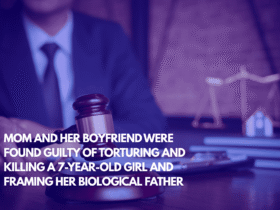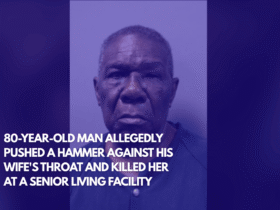A federal judge in Colorado has temporarily blocked U.S. immigration officials from deporting the wife and five children of Mohamed Soliman, the man charged in the Boulder attack on Sunday. The attack, which involved Molotov cocktails and left more than a dozen people wounded, has sparked significant legal and political controversy.
Court Order and Temporary Relief
U.S. District Judge Gordon Gallagher issued a temporary order to halt the deportation of Hayem El Gamal, Soliman’s wife, and their five children. The judge stated that the order was necessary to preserve the court’s jurisdiction over the case.
Judge Gallagher expressed concern that deporting the family without due process could cause irreparable harm, which led him to issue the ruling without prior notice due to the urgency of the situation.
The judge has also scheduled a hearing for June 13 at the federal courthouse in Denver to consider a temporary restraining order for the family.
Family’s Detention and Deportation Proceedings
The Department of Homeland Security announced on Tuesday that Immigration and Customs Enforcement (ICE) had taken Soliman’s wife and children into custody and was moving forward with removal proceedings. According to Homeland Security Secretary Kristi Noem, the family was being processed for deportation.
Federal immigration records show that the family is currently being held at a federal detention center in Dilley, Texas, a facility designated to house families with minors. The family had been living in Colorado Springs, Colorado, before the incident.
The family, including four minor children and one 18-year-old child, initially entered the U.S. in August 2022. Soliman filed for asylum in September of the same year, according to the Department of Homeland Security.
Boulder Attack and Legal Implications
Mohamed Soliman, an Egyptian national, is facing serious charges, including multiple counts of attempted murder and a federal hate crime charge for the attack that occurred on Sunday. The attack targeted a group of people at a march in Boulder, Colorado, in support of Israeli hostages, and included an 88-year-old Holocaust survivor among the victims.
Witnesses reported that Soliman shouted “Free Palestine” and “End Zionist” during the attack, further intensifying the political and legal ramifications of the case. Law enforcement officials have confirmed that Soliman used Molotov cocktails, causing burns to several victims.
Legal and Political Repercussions
The temporary block on the deportation of Soliman’s family highlights the legal complexities surrounding the case. While the Trump administration’s stance on immigration has been to expedite the deportation of individuals, especially in cases involving national security and terrorism, this ruling underscores the importance of due process, even in urgent situations.
Judge Gallagher’s ruling is expected to have broader implications on the handling of immigration cases involving family members of individuals charged with serious crimes, particularly in cases where the due process rights of the deported individuals may be at risk.
Next Steps and Public Reaction
As the case moves forward, the June 13 hearing will likely provide more clarity on the future of Soliman’s family in the U.S. While the legal process plays out, public interest in the case remains high, with many advocating for the due process rights of both Soliman and his family.
The outcome of this case may also set a precedent for future immigration cases, particularly those involving individuals accused of serious crimes linked to national security concerns. The political and legal ramifications of this situation will undoubtedly continue to unfold.











Leave a Reply